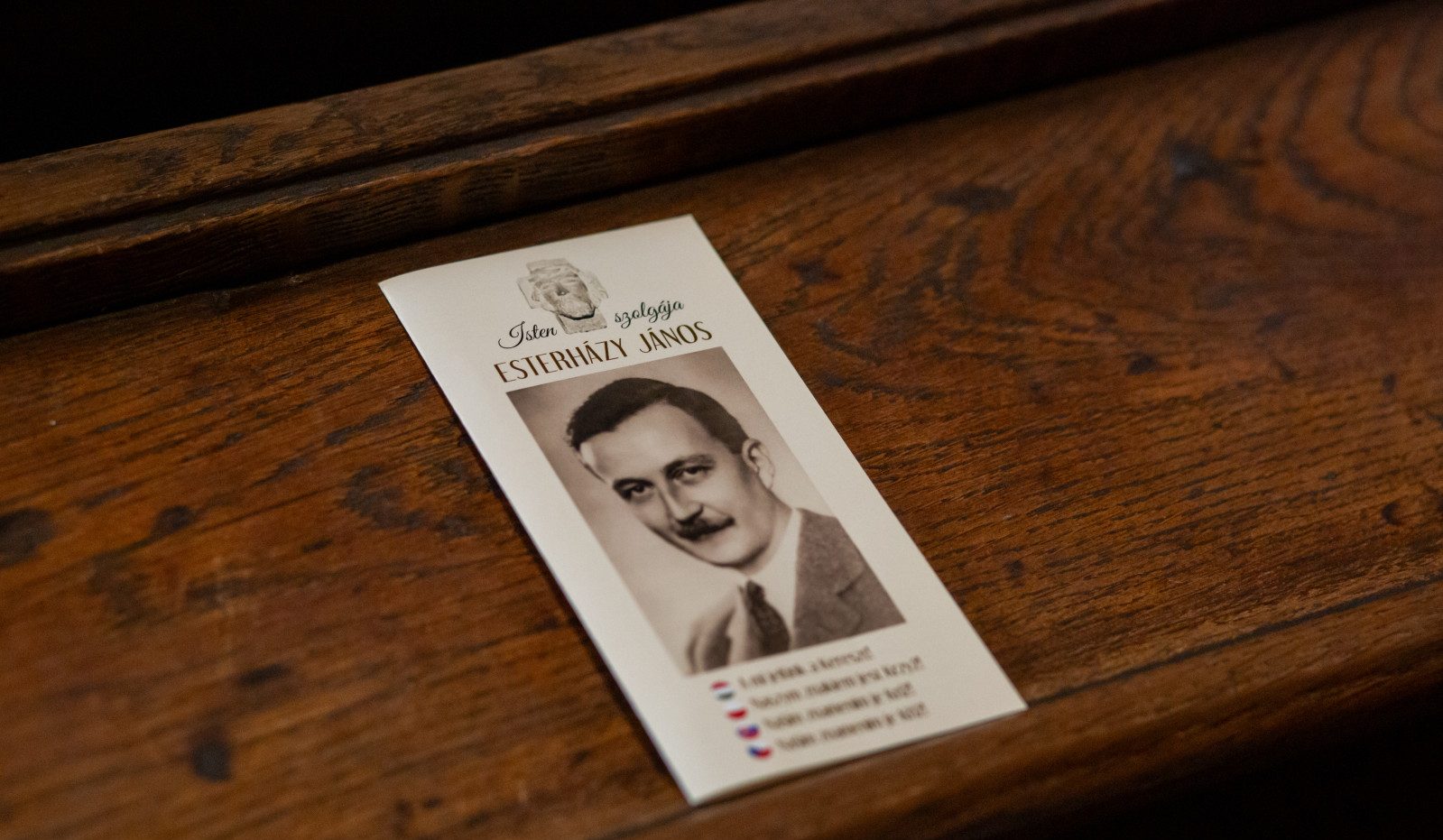
János Esterházy was the active protector of the Hungarian minority of Slovakia.Continue reading
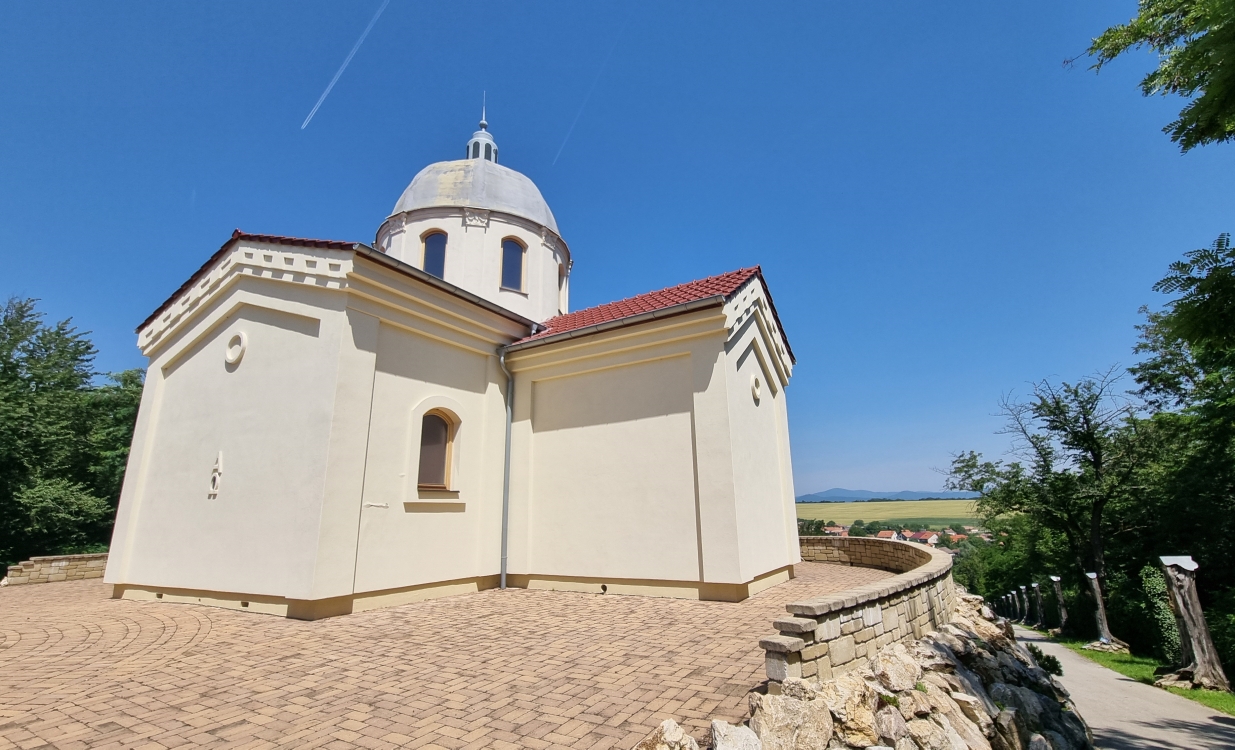
In between the magic hills of the Zobor region, among ancient villages founded by the kings of the Hungarian Árpád-house, lies the resting place of one of our greatest Hungarian politicians and martyrs of the twentieth century, Count János Esterhazy. The pilgrimage center is not only a memorial place for the local politician, who perished as a prisoner of the Chechoslovak communist regime in 1957, but also a memorial for the victims of communism from the Visegrad 4 countries, Slovakia, Hungary, Czechia and Poland.
The ongoing works on the Esterhazy memorial in Dolné Obdokovce (Alsóbodok) started some decades ago by local businessman, Boldizsár Paulisz. A visionary patriot, who set out to grant Esterhzázy his dying wish, to be buried in the soil of his homeland. After the death of Mr. Paulisz in 2018, his son, Marián, has taken over the stewardship of the center.
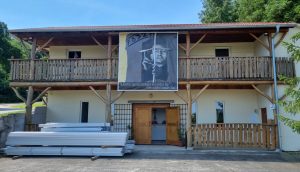
Entrance to the Museum of the János Esterházy Pilgrimage Center. Photo: Hungary Today
The pilgrimage center covers its running costs from a mixture of small grants, visitor’s fees collected through summer camps, conferences, school trips, organized groups, donations, and its restaurant that hosts private events. However, a large part of the costs are drawn from the Paulisz family’s private resources. Their goal is to make the center self-sustaining by 2030. Entrance to the memorial and the grave though is free of charge, the gates to the crypt remain open 24/7.
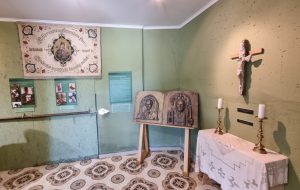
János Esterházy Pilgrimage Center. Photo: Hungary Today
There is a small museum at the entrance to the private park containing artifacts belonging or related to Esterházy. Some are recent artworks, some are local finds and donations from private collectors, but the most important ones come from a donation from Alice Esterházy-Malfatti, daughter of Count Esterházy.
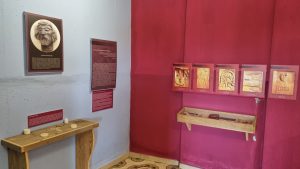
János Esterházy Pilgrimage Center. Photo: Hungary Today
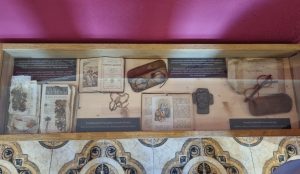
János Esterházy Pilgrimage Center. Photo: Hungary Today
The collection contains precious personal items such as Esterházy’s glasses, his prayer books, or the only item that the Mírov prison administration had returned to his family after his death, a rosary made out of paper (center left).
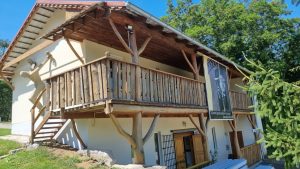
János Esterházy Pilgrimage Center. Photo: Hungary Today
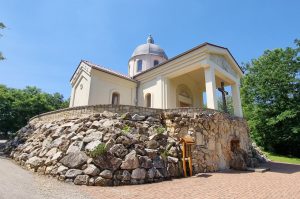
János Esterházy Pilgrimage Center. Photo: Hungary Today
The mausoleum is a shared resting place of the Paulisz family and that of the remains of János Esterházy, as local authorities at the time would not allow the construction of a dedicated memorial to the Hungarian politician.
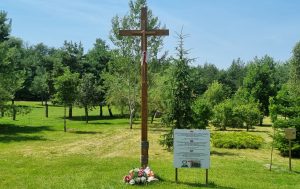
János Esterházy Pilgrimage Center. Photo: Hungary Today
The large and well maintained park around the mausoleum contains a number of memorials to the victims of communism, among them that of the Polish catholic priest, Jerzy Popiełuszko, murdered by the secret police in 1984.
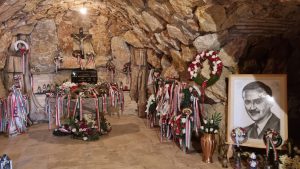
János Esterházy Pilgrimage Center. Photo: Hungary Today
The grave of Count Esterházy is inside an artificial cave, containing the ashes collected from a mass-grave in Mírov prison. The ashes were given to the Paulisz family by the Hungarian politician’s daughter, after Esterházy’s home village in nearby Veľké Zálužie (Nyitraújlak) had refused permission to bury the politician’s remains there. Representatives of nearby villages have therefore brought small quantities of soil to host his ashes buried behind the altar.
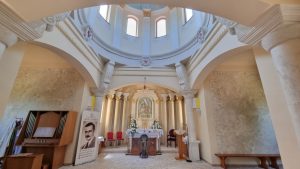
János Esterházy Pilgrimage Center. Photo: Hungary Today
The mausoleum, also built by Boldizsár Paulisz, contains an altar, where services are held by the pilgrims and local clergy.
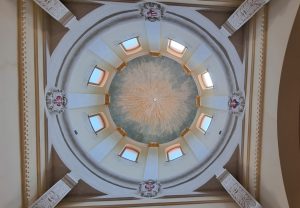
János Esterházy Pilgrimage Center. Photo: Hungary Today
The dome of the mausoleum contains the national emblems of all Visegrad four countries as a symbol of János Esterházy’s ties to all of them.
On 16 September 2017, his remains were laid to rest in the Chapel of the Exaltation of the Holy Cross in Dolné Obdokovce (Alsóbodok). In November 2018, the Vatican authorized the initiation of his beatification, which is being carried out by the Archdiocese of Krakow.
Featured Image: Hungary Today